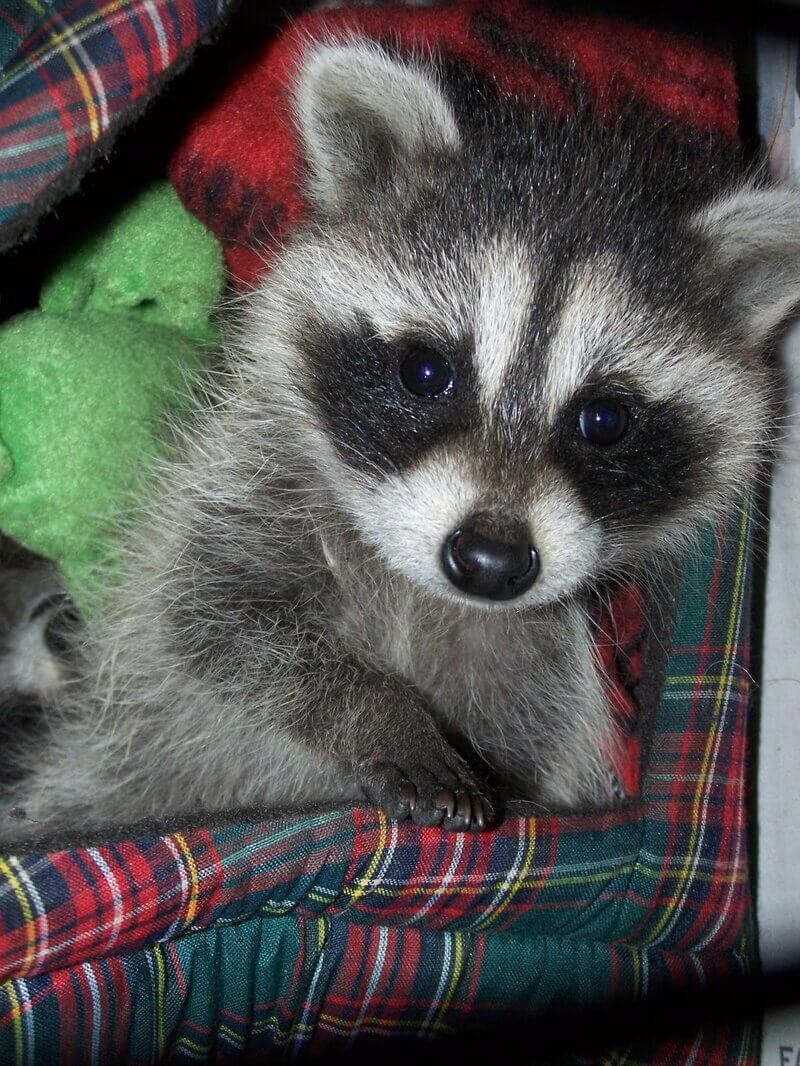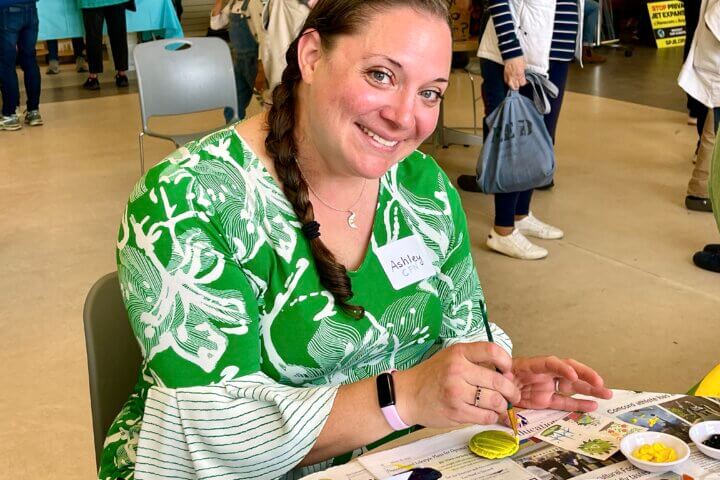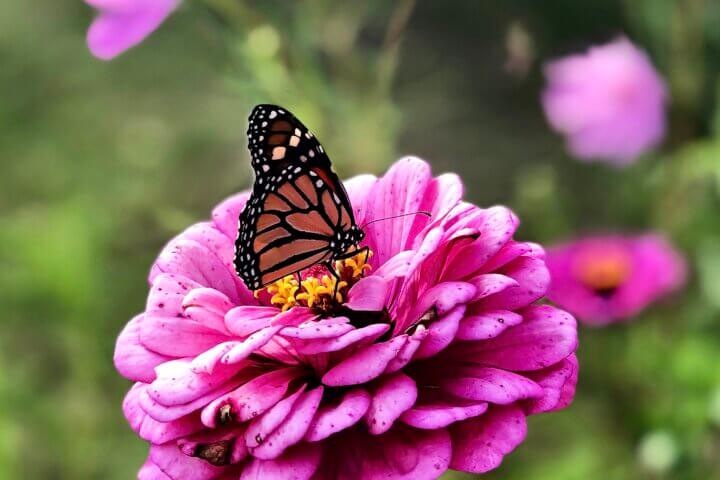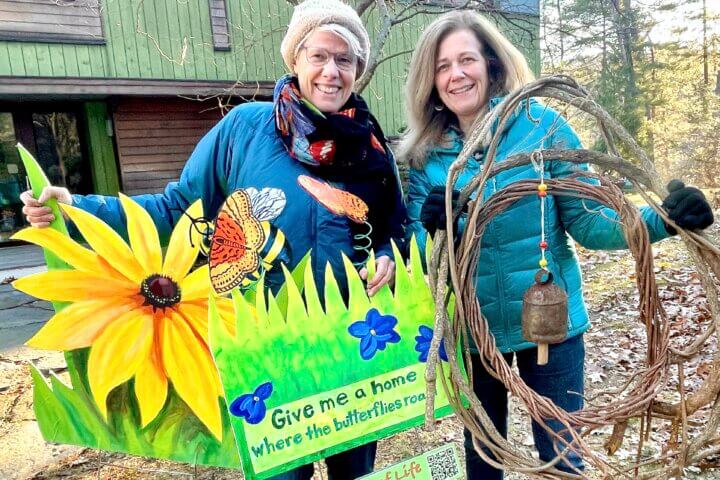The cries were hard to bear and went on deep into the night. My neighbor Tiffany finally could stand it no longer and went outside to find the source. Two small, young raccoons were alone, wandering up and down our street, crying. Though hard to do, she correctly decided to leave them alone. Raccoons are nocturnal and, in most cases, the mother finds her wandering young ones before morning.
The next morning was bright and cool, and I found them huddled together in a shivering ball of fur, at the end of a neighbor’s driveway. They were alive but weak on the asphalt, not raising their little heads, even as trucks drove past and dogs pulled close on their leashes to investigate.
Early June is when many wild animal babies are starting to venture out on their own. It’s also when well-meaning people try to help by “rescuing” them. Baby animals are all unbearably cute at this age, but “leave them there, if you care”.
Unlike humans, young wild animals are often left alone for long periods of time. Adults are out finding food and typically only come back a few times per day. Most young animals do not survive if separated from their wild mothers.
At Yellowstone National Park this year a man tried to help a young bison calf crossing a stream. The calf was put down after it was rejected by the herd due to the tourist’s meddling.
Locally, “lost” baby deer (fawns) are most likely to be “rescued.” To avoid them becoming exhausted by trying to follow mom all day, their mothers hide them for long periods and the camouflaged, spotted fawns instinctively lie still in the grass. Like the bison, deer have a strong sense of smell and will sometimes abandon their fawns if they are handled by people. Almost always, the momma will return as soon as you leave. Unless it is wounded or in obvious distress, never touch a “found” baby deer.
Baby birds have left the nest this time of year. These flightless youngsters hop around on the ground, being fed and taught by their parents. If you find a fledgling, be sure no pets can get it and leave it alone. If you find a hatchling without any feathers, you can gently return it to the nest. Despite enduring myths to the contrary, momma birds will not abandon a chick if it’s touched.
Young rabbits leave their moms at about three weeks old. If you see a bunny that looks like an adult, just smaller, it is a weaned juvenile – fine on its own. Before three weeks, the kits instinctively stay in the nest, even if the mother rabbit runs off. The nests are on the ground and look like patches of dead grass, usually lined with fur. Sometimes these nests are disturbed and it can be tempting to take the baby bunnies. Leave them be and, almost always, the momma will come back after you move away.
Baby squirrels (also kits) leave their nests at eight-nine weeks. Before this they sometimes fall from trees or become separated from their mothers. The mother is likely not coming to rescue the wayward kit because you are there. Again, unless the young squirrel is clearly hurt, leave it alone, so the mother can fetch it.
And this brings us back to the raccoons on Damon Street. After 24 hours and since they were clearly in distress, it was time to intervene. Wearing gloves, after a huddle with neighbors and some online checking, I lifted them into a blanket-lined bin. After drinking water and warming up in the sun, they became more active and started calling again. Phew!
Jennifer, our local animal control officer, came by that afternoon and told us that an adult raccoon was dead nearby – likely hit by a car. Sad about their predicament but excited that we might be able to help, a flurry of calls followed and a wildlife rehabilitator was finally located that had room.
Tiffany drove them to Billerica and the rehabilitator Laura explained they were about five weeks old and she would raise them for six months, before returning them to the wild. She already had 12 others! Our brother and sister raccoon now had a new lease on life, thanks to the work of Laura and NEWARC (North East Wildlife Animal Rehabilitation Coalition). This amazing non-profit relies on donations and is run by five local women, all wildlife rehabilitators. Learn more and donate at www.New-Arc.org.
I hope you enjoy the glorious early summer weather and spend some Time Outdoors this weekend! If you come across any young wild animals, remember “if you care, leave them there”.
Wilson Kerr lives in Concord and is an avid outdoorsman and amateur naturalist. This column is designed to help grow awareness of the wonders of nature. In this increasingly fast-paced and technology-packed world, it is important to stop and take in the beauty of our area and the animals that inhabit it. The author hopes this recurring column will be read by families and used as a teaching tool and that you will spend more… Time Outdoors.





